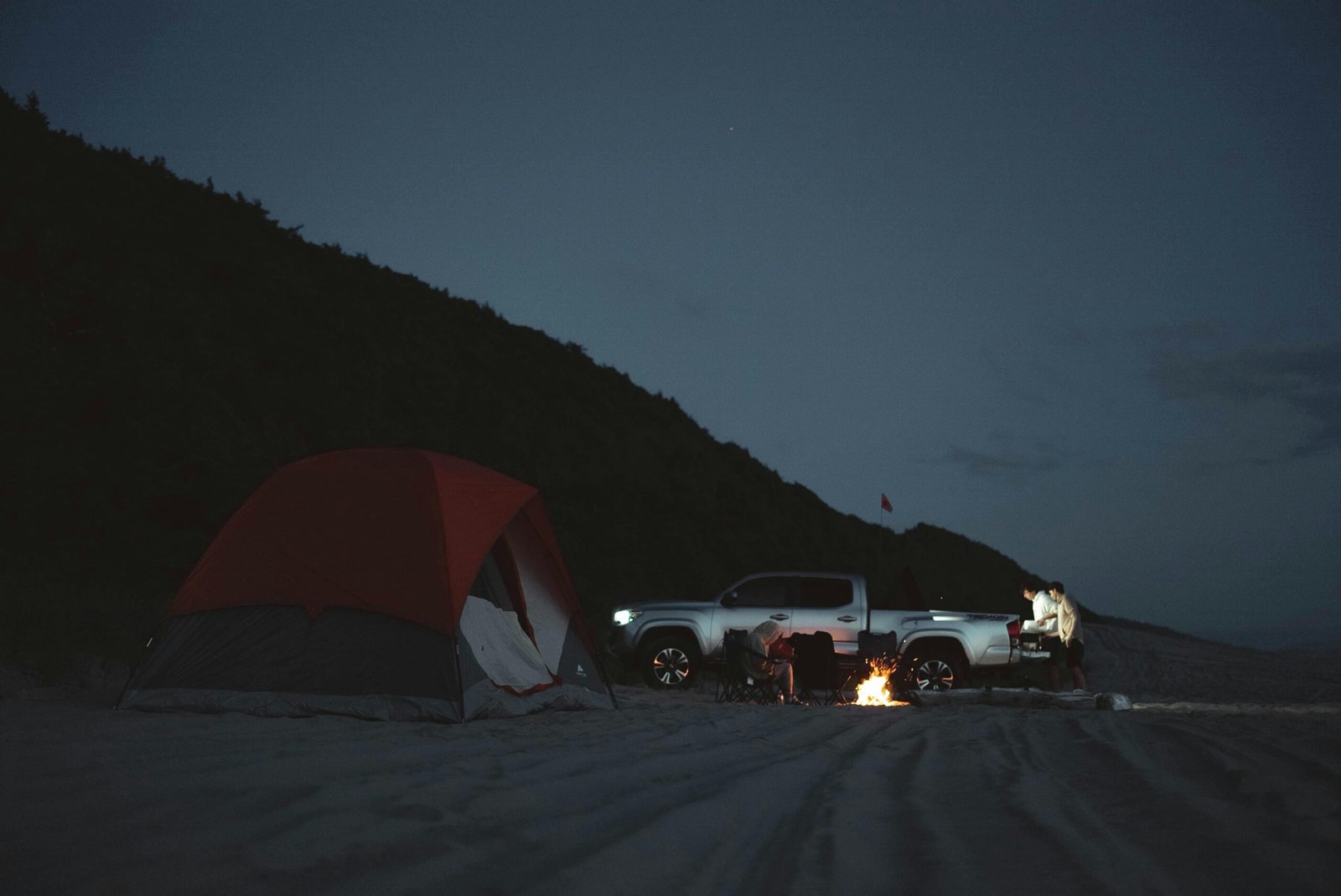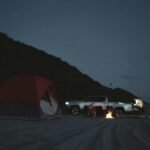This article may contain affiliate links. read more
Ready for beach camping fun? Let’s talk Tides and Tents! Learn what’s cool to do and what’s not. Simple tips for an awesome seaside adventure! In this guide, we’ll explore the dos and don’ts of beach camping, ensuring your coastal adventure is both memorable and safe.
Table of Contents
1. Understanding Tides
Tides are the pulse of the beach, influencing its landscape and creating a dynamic environment. Understanding the science behind tides is fundamental to a successful beach camping experience.
The Science Behind Tides
Gravitational forces, predominantly influenced by the moon, orchestrate the rise and fall of tides. This cyclical dance is crucial to coastal ecosystems and impacts the beach terrain.
Tides and Terrain
Tides shape the beach, influencing the availability of suitable campsites. Knowing how tides affect the landscape enables campers to choose optimal locations, ensuring a safe and enjoyable stay.
2. Dos: Essentials for a Successful Beach Camping Experience
Choosing the Right Tent:
Investing in a quality, sand-resistant tent, such as the Coleman 4-Person Camping Tent (available on Amazon), is paramount. Its sturdy construction and weather resistance make it an ideal companion for coastal adventures.
High-Tide Preparations:
Waterproofing and Sandproofing:
Equip yourself with gear like the Arctic Zone Freeze Zipperless Cooler (available on Amazon) to keep essentials dry and sand-free. Additionally, consider waterproofing techniques for your tent and personal belongings.
3. Don’ts: Common Mistakes to Avoid:
Ignoring Tide Charts:
Neglecting tide charts can lead to camping mishaps. Always stay informed about tide schedules to prevent unexpected challenges during your stay.
Leaving Gear Unsecured:
Disregarding Environmental Impact:
4. Navigating Potential Hazards:
Dealing with Changing Weather Conditions:
Wildlife Awareness
5. The Ideal Beach Camping Checklist
6. Personal Stories: Lessons Learned from Beach Campers
Success Stories
Cautionary Tales
7. Essential Gear for a Beach Camping Experience
Frequently Asked Questions (FAQ)
Q1: Can I camp on any part of the beach?
Answer: While some beaches allow camping anywhere, it’s crucial to check local regulations and guidelines. Many beaches have designated camping areas to protect the ecosystem.
Q2: How do I secure my tent during high tide?
Answer: Use sandbags or anchors to secure your tent. Additionally, position your tent further from the waterline during high tide.
Q3: Is beach camping safe during stormy weather?
Answer: It’s generally advisable to avoid beach camping during severe storms. Stay informed about weather forecasts and plan your trip accordingly.
Q4: How can I minimize my environmental impact while beach camping?
Answer: Practice leave-no-trace principles, pack out all your trash, and avoid disturbing local wildlife. Follow the “Leave Only Footprints” motto.
Q5: What should I do if I encounter wildlife on the beach?
Answer: Maintain a safe distance, observe quietly, and avoid feeding or approaching wildlife. If there are specific guidelines, follow them accordingly.









